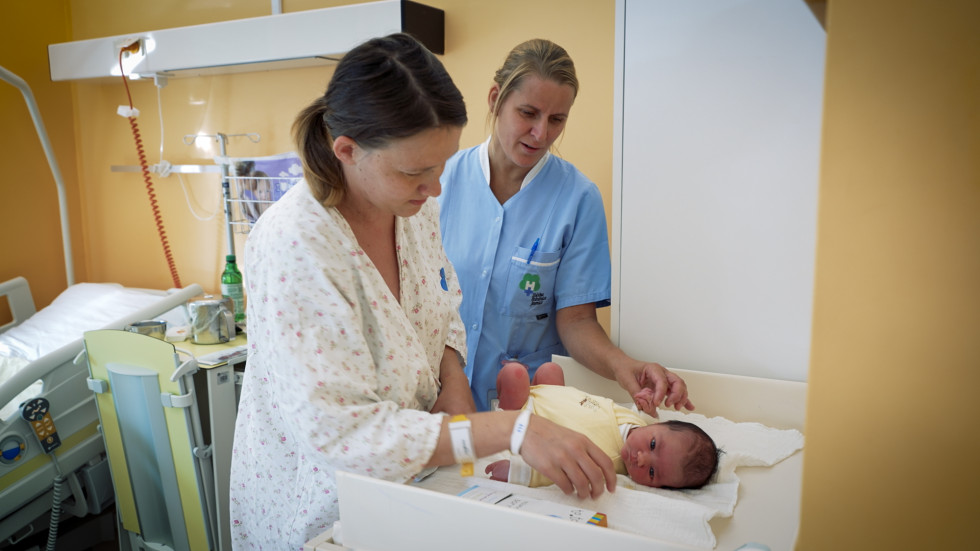Midwifery inscribed on the UNESCO Representative List of Intangible Cultural Heritage of Humanity
Midwifery as a cultural practice
Midwifery consists of knowledge and skills which promote the wellbeing of women, babies, children and families. Midwives provide ongoing care and support during the natural processes of pregnancy, during the labour and after it. In doing so, they rely on evidence-supported research, intuition, and empirical and traditional knowledge. Midwifery ensures fundamental human rights, particularly those of women. Midwifery can be performed by people regardless of gender, but the majority of providers of midwifery services are women.
“The essence of midwifery is the loving care provided for a woman at the time when she is expecting and giving birth to a baby. Midwifery knowledge is the result of the considered traditions of childbirth assistance, modern scientific findings and thoughtful experiences that midwives gain during childbirth. From the aspect of public health, advanced midwifery is understood as an important factor for health promotion and an opportunity for the empowerment of women as mothers, which contributes to the welfare of the entire society,” said Zalka Drglin of the National Institute of Public Health and professional associate in the nomination.
In addition to medical and anatomical knowledge, midwives rely on the senses of touch and smell, as well as feelings and observation. Their skills and knowledge have been safeguarded, developed and passed on by practising communities for generations. Nowadays, they are being transmitted through formal, informal and occasional educational environments. Midwifery includes special cultural practices, terminology, celebrations and rituals, such as cutting of the umbilical cord.
Inscription based on the community initiatives
Midwives are the main holders and providers who frequently form groups and associations and have initiated the inscription of this intangible heritage. Other networks, such as academic institutions or organisations involved in labour, breastfeeding, women’s rights and family planning, also promote the transmission of skills and knowledge. In addition to the extensive international consultation procedure for preparation of the nomination dossier, midwifery communities and groups were also extensively involved at national levels.
In the statement following the inscription, the Columbian midwife Liceth Quiñones said,
“The midwives from eight countries who participated in this nomination have made this first step to include the knowledge on midwifery in the immense cultural heritage of the planet, as we are firmly convinced that this cultural element serves as a necessary practice to ensure the welfare of various human communities. We have obtained the skills from our wise elders to listen to the women as they become mothers, to their bodies and souls, to take care of them and their bodies and help them recover. We are involved in the strengthening of family, community and spiritual networks, so that the newborns find the perfect path towards their development. We are aware – now and always – that we are the custodians of ancestral knowledge, which developed through practice and is equally valid as scientific medical knowledge.”
The nomination was prepared by the midwives’ associations from eight countries in cooperation with ministries and experts in the field of culture and public health. Other countries can also join the nomination and thus support the safeguarding of midwifery.
Intangible cultural heritage
Intangible cultural heritage includes living traditions, such as dance, theatre, music, oral tradition, knowledge about the environment and craft techniques. Since 2003, 180 countries have joined the 2003 UNESCO Convention for the Safeguarding of the Intangible Cultural Heritage.
It is possible to propose that intangible heritage units from national lists be inscribed on one of the three international UNESCO lists. Such units are, for example, the sauna culture in Finland and the reggae music of Jamaica. The States Parties can propose multi-national nominations to promote international cooperation and showcase the shared and inclusive cultural heritage of humanity. At the proposal of the Evaluation Body, the Intergovernmental Committee annually decides on the inscription of new cultural forms on the UNESCO Lists of Intangible Cultural Heritage.
Midwifery is the seventh inscribed element from Slovenia on the UNESCO Representative List.


